
by BGF | Oct 21, 2018 | News
An app recently found can analyze your phone using habit to test for mental illness. Mindstrong Health, a startup in Palo Alto, California, is attempting to seek the linkage between depression and the device in our pocket.

A smartphone app is used to gather people’s cognition and emotional health by look into their way of using smartphones. After the installation of the app, it monitors things like the way the person types, taps, and scrolls while using other the device. It encrypts and analyzes remotely using machine learning, and the results are shared with the patient and the patient’s doctor.
According to MindStrong’s research, how you interact with your phone reveals important clues to your mental health. For example, a relapse of depression; with details collected from the app, users are informed when something may be amiss and can then check in with the patient by sending a message through the app and the other way around. From a research into a hundred and fifty subjects, it is found that the behaviors can tell a lot about you health.
“There were signals in there that were measuring, correlating—predicting, in fact, not just correlating with—the neurocognitive function measures that the neuropsychologist had taken,” said Paul Dagum Mindstrong, founder and CEO. For example, memory problems, which are common hallmarks of brain disorders, can be discovered by investigating the typing speed and error frequency (such as how frequently you delete characters), as well as by how fast you scroll even when you’re just using the smartphone’s keyboard. You’re switching your attention from one task to another all the time—for example, when you’re inserting punctuation into a sentence.
The app can be a great innovation for people tackling depression, or schizophrenia, substance abuse and a lot of greater benefits on the way. The company has data to confirm its science and technology. It is continuing to perform numerous studies, and this past March it began working with patients and doctors.
However, the fact that the app is currently collecting user’s health record could lead to violation, theft, attack if it is not carefully supervised and protected. According to the first layer of AIWS 7-layer Model developed by Michael Dukakis Institute, a set of ethical standards for technology, transparency in application and design of the technology need to be transparent.

by BGF | Oct 21, 2018 | News
As Facebook and Google have become an essential part of our daily lives – a tool that cannot be missed, researchers around the world have been working on a way to identify fake news. Facebook has 20,000 people to monitor the content posted by its users. But there can never be enough to supervise all the phony stories.

Scientists at many institutions, including MIT, the University of Michigan and Clemson University, are trying to train computers to spot such fakes, using the AI. Marten Risius, an assistant professor of management at Clemson, had the same idea not long after the 2016 election. He and a colleague in Germany, Christian Janze, went to work on an automatic fake news detector.
Risius and Janze obtained a collection of more than 2,000 articles about the election posted on Facebook and compiled by the news site Buzzfeed.
Since fake news stories always based on the truth, they had their software look for common characteristic of stories. In the case of Risius and Janze, the found fake stories by spotting a large number of capitalized words and exclamation points. Clues can be found in the way other Facebook reader’s response to the news. It is likely that fake news tends to get more “love” or “laughter” icons but not many shares compare to the truth.
After its training, the software on another batch from the Buzzfeed compilation that it had not seen before, and Risius said it accurately identified the fakes 88 percent of the time.
Another effort to deal with fake news is Ramy Baly’s. He is a postdoctoral student at MIT and also develops software to identify trustworthy news sources on the Internet. Baly has spotted a host of subtle indicators to suggest a news site might not be on the level.
In December 2018, Boston Global Forum and Michael Dukakis Institute will also organize the Fourth Annual Global Cybersecurity Day, event title ‘AI solve Disinformation’, to explore the current state of cyber issues and the threat posed by disinformation and fake news, as well as effective defense mechanisms against these activities.

by BGF | Oct 21, 2018 | News
Cybersecurity experts shared their experiences in combat cyber threat.

Estonia was the first victim of cyberattack in the world, and since then so many measures has been taken. Mr. Toomas Hendrik Ilves, who was the President of Estonia from 2006 to 2016, worked as a diplomat and journalist and was awarded with the World Leader in Cybersecurity Award by Boston Global Forum and Michael Dukakis Institute in 2017. In the interview with GovInsider, he shared his personal experience in dealing with cyberwarfare with other Estonian experts. As the first victim of fake news and information black out, he listed three main key points:
Awareness of cybersecurity
Cybersecurity usually requires complex knowledge on the mechanism of the system. But a complicated process would be simple if people knew it mechanism. Data stored in an outdated system can easily be hacked taking the case of Singapore. Ilves addressed methods of authentication, such as passwords, are no longer safe, “if we want minimal security, you need to go over to two-factor authentication.”
Collaboration
The second key point is collaboration. Nations need deeper discussion figures it out solutions to this global problem, Ilves suggested, “we need far more collaboration and cooperation in this field than we have seen up till now.”
To have a plan
Kevin Mandia, chief executive officer of FireEye, shared four main methods to tackle cyber threats.
The first one is deterrence. A system is to identify the time and place of an attack as well as the attacker. “If you know who compromised you, that’s the only way to enact policy; it’s the only way to hold nations accountable,” said Mandia.
Secondly, collating all information spread across the nation to acquire a shield during times of geopolitical tensions for certain industries and system not be able to defend a cyberattack.
Thirdly, establishing rules of engagement on the internet is a crucial step. “We have to start holding people accountable, and we have to make it so that nations that abide by the rules of engagement are all going to live with and have a good internet experience,” he added.
Finally, governments should prioritize protecting its systems first, critical infrastructure next, and then the nation.

by BGF | Oct 21, 2018 | News
The Education for Shared Societies (E4SS) Policy Dialogue took place on October 16-17, 2018 in Lisbon, Portugal under the cooperation of World Leadership Alliance – Club de Madrid (WLA-CdM) and the Calouste Gulbenkian Foundation. Mr. Nguyen Anh Tuan, Director of Michael Dukakis Institute, attended this event.

Mr. Nguyen Anh Tuan with Mr. José Manuel Barroso (right), former President of the European Commission, former Prime Minister of Portugal, and Adviser at BGF-G7 Summit Initiative 2016
The WLA-CdM began its Shared Societies Project (SSP) a decade ago with the hope of building peace and democracy in political, social, economic and environmental dimensions. The project has been making efforts to raise a sense of belonging and shared responsibility from everyone in the shared society. This year, the organization focuses on educational engagement for all.
The three main topics of the E4SS are to indicate and demonstrate some current top global issues including Refugees, Migrants and Internally Displaced People (IDPs); Preventing Violent Extremism (PVE); and Digital Resilience. With the presence of many leaders and duty bearers, the discussion on policy will change for global action in the near future.
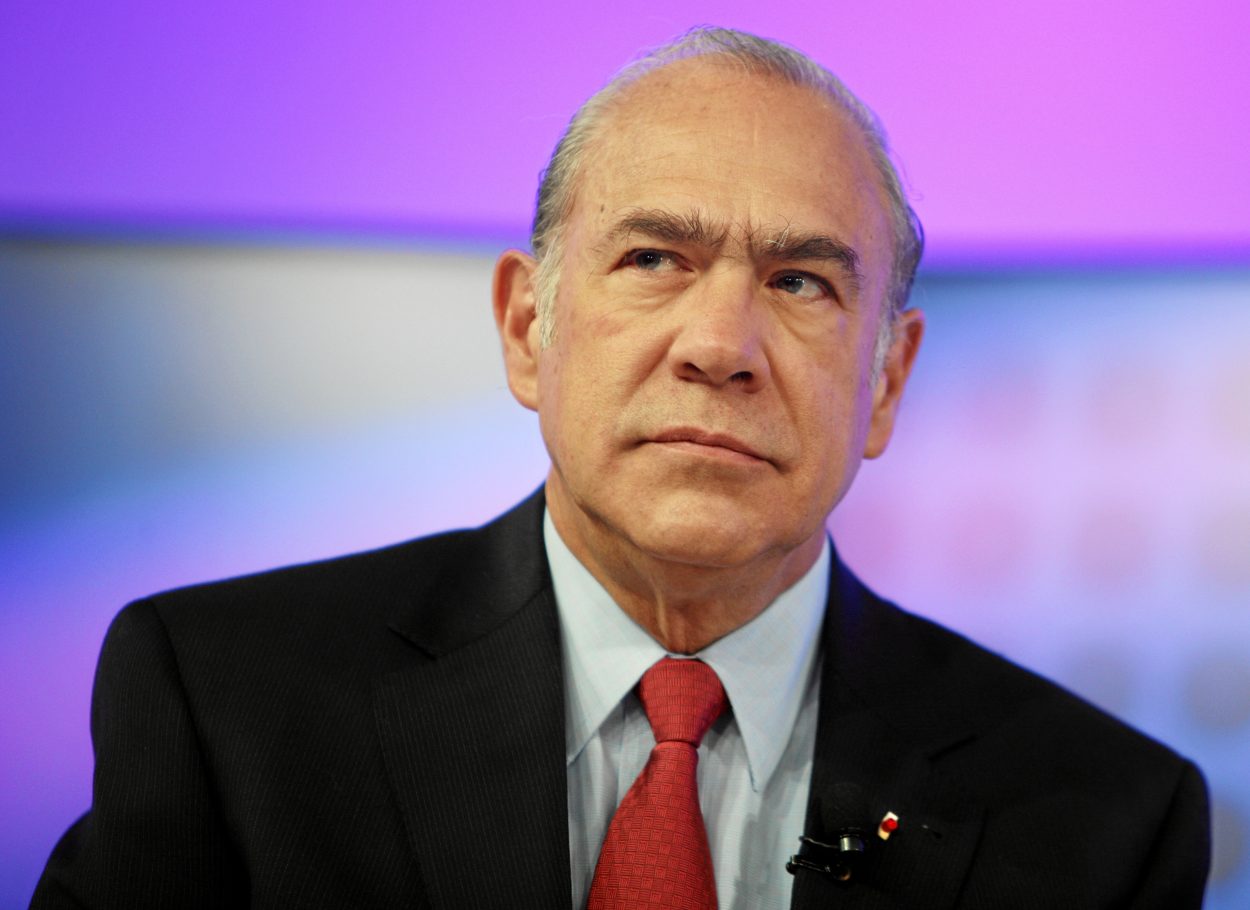
by BGF | Oct 14, 2018 | World Leaders in AIWS Award Updates
World Leader in AI World Society
Harvard University Faculty Club, April 25, 2018

Ángel Gurría
Secretary General of the Organisation of Economic Co-operation and Development (OECD)
As Secretary General of the Organisation of Economic Co-operation and Development (OECD) since 2006, Ángel Gurría has firmly established the Organisation as a pillar of the global economic governance architecture including the G7, G20 and APEC, and a reference point in the design and implementation of better policies for better lives. He has broadened OECD’s membership with the accession of Chile, Estonia, Israel, Latvia and Slovenia, and has made the Organisation more inclusive by strengthening its links with key emerging economies.
Since 2010, Ángel Gurría has also served as a Commissioner for the Broadband Commission for Digital Development, which is dedicated to the use of broadband technologies as a means of social and economic development.
Before becoming head of the OECD, he was Mexico’s Secretary of Foreign Affairs and Secretary of Finance. He was instrumental in the negotiation of NAFTA and in guiding Mexico through its 1994 financial crisis. He also headed Mexico’s National Development Bank and chaired the Inter-American Development Bank’s External Advisory Group.
He is the recipient of many awards and honors, including recognition by the French, Dutch, and Korean governments. He was the inaugural recipient of the Canadian International Council’s Globalist of the Year Award, for his efforts in promoting global cooperation and consciousness.
Under Ángel Gurría’s leadership, OECD is leading the effort to reform the international tax system, and to improve governance frameworks in anti-corruption and other fields. OECD is addressing issues surrounding the development of Artificial Intelligence based on two fundamental questions:
What sort of policy and institutional frameworks should guide AI design and use?
And: How can we ensure that AI benefits society as a whole?
For his leadership on AI, the Boston Global Forum and the Michael Dukakis Institute honored to recognize Secretary General Ángel Gurría as the inaugural recipient of the World Leader in AI World Society on April 25, 2018 at Harvard Faculty Club.
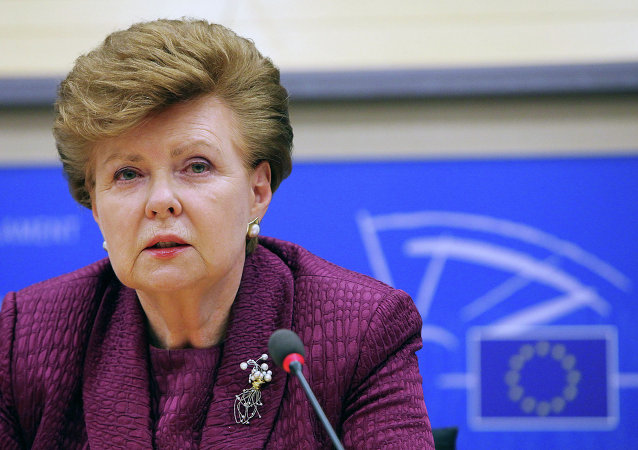
by BGF | Oct 14, 2018 | World Leaders in AIWS Award Updates
Distinguished Innovation Leader
May 15, 2018

Vaira Vike-Freiberga
President of the World Leadership Aliance Club of Madrid, Former President of the Republic of Latvia
Vaira Vike-Freiberga is former President of Latvia. She was elected President by the Parliament in 1999 and was re-elected for a second term of four years in 2003. Now, Vaira Vike-Freiberga currently serves as the President of the World Leadership Aliance Club of Madrid, the world’s largest forum of former Heads of State and Government.
She has actively exercised the powers conferred to the President by the Constitution of the Republic of Latvia and has played a leading role in achieving Latvia’s membership in NATO and the European Union. She is an invited speaker at numerous international events. Outspoken pundit on social issues, moral values, European historical dialogue, and democracy, she was awarded the 2005 Hannah Arendt Prize for political thought.
Vike-Freiberga has held prominent positions in national and international scientific and scholarly organisations, as well as in a number of Canadian governmental, institutional, academic and interdisciplinary committees, where she acquired extensive administrative experience. She is a member of four Academies, and board member or patron of 30 international organizations, including the Board of Thinkers of the Boston Global Forum.
She has also published 14 books and authored over 200 articles, essays or book chapters, and has given over 250 speeches, allocutions and scientific communications in English, French or Latvian, and gave numerous radio, TV and press interviews in various languages. She speaks Latvian, English, French, German and Spanish.
Since 1999, she has received many medals and awards, twenty-seven Orders of Merit and ten honorary doctorates. On May 15, 2018, Vaira Vike-Freiberga was honored as the Distinguished Innovation Leader for her distinguished work in the humanities and social sciences by the Boston Global Forum and the Michael Dukakis Institute.
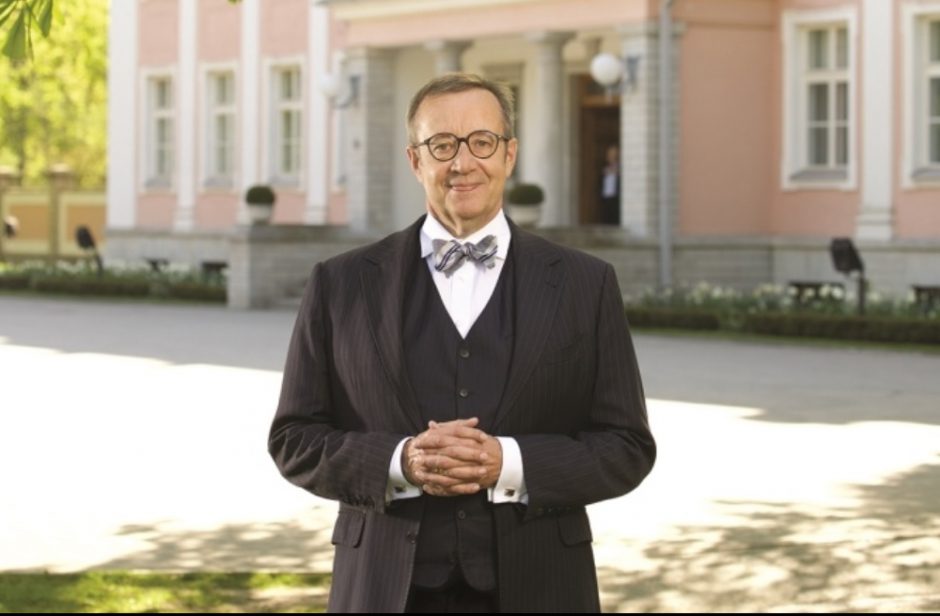
by BGF | Dec 12, 2017 | World Leaders in AIWS Award Updates
World Leader in Cybersecurity
Loeb House, Harvard University, December 12, 2017

Toomas Hendrik Ilves, Former President of the Republic of Estonia
Toomas Hendrik Ilves served as the fourth President of Estonia from 2006 to 2016, previously served in the government as Minister of Foreign Affairs from 1996 to 1998 and again from 1999 to 2002. He was key in driving the initiatives in e-government and cyber security for which the country has been acknowledged as a world-leader.
From 1993 to 1996, Ilves served in Washington as the Ambassador of the Republic of Estonia to the United States of America and Canada. During this time he initiated with education minister Jaak Aaviksoo the Tiger Leap initiative to computerize and connect all Estonian schools online.
In 2004, Ilves was elected a Member of the European Parliament, where he was vice-president of the Foreign Affairs Committee. As an MEP, he initiated the Baltic Sea Strategy that later was implemented as official regional policy of the European Union.
Toomas Ilves was elected President of the Republic of Estonia in 2006, and was re-elected for a second term in office in 2011. In June 2017, President Ilves was awarded the Reinhard Mohn Prize entitled, “Smart Country: Connected. Intelligent. Digital.”
During his presidency, Ilves was appointed to serve in several high positions in the field of ICT in the European Union. He served as Chairman of the EU Task Force on eHealth from 2011 to 2012. From 2012 to 2014, at the invitation of the European Commission, he was Chairman of the European Cloud Partnership Steering Board. From 2014 to 2015, he was the co-chair of the advisory panel of the World Bank’s World Development Report 2016 “Digital Dividends” and since June 2014, the chair of World Economic Forum’s Global Agenda Council on Cyber Security.
Since November 2016, Ilves has co-chaired the Global Futures Council on Blockchain Technology, a working group set up by the World Economic Forum focusing on how blockchain technology can be used to improve the security of the internet.
His interest in computers started at an early age – he learned to program at the age of 13, and he has been promoting Estonia’s IT-development since the country restored its independence. During recent years, Ilves has spoken and written extensively on integration, trans-atlantic relations, e-government, cyber security and other related topics. He has published many essays and articles in Estonian and English on numerous topics ranging from Estonian language, history and literature to global foreign and security policy and cyber security.
Having realized just how important the early adoption and acquisition of digital skills were before many others did, President Ilves was named the World Leader in Cybersecurity with his contributions by the Boston Global Forum and the Michael Dukakis Institute on December 12, 2017 at Loeb House, Harvard University.
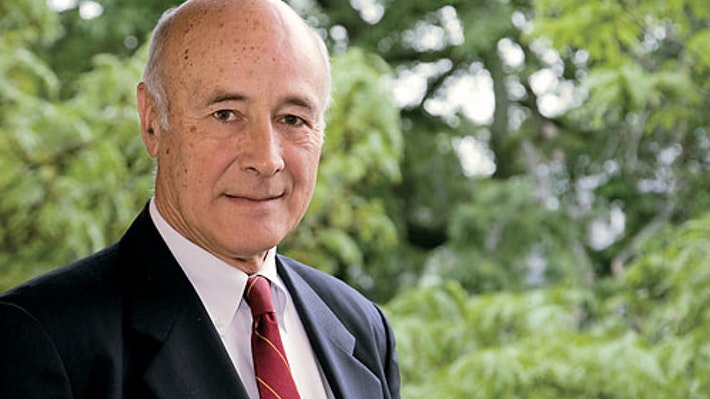
by BGF | Oct 14, 2018 | World Leaders in AIWS Award Updates
Distinguished Global Citizenship Educator
Harvard University, September 9, 2017

Prof. Joseph Nye
University Distinguished Service Professor at Harvard University, Father of the theory of “Soft Power”
Joseph Nye, born January 19, 1937, is an American political scientist. He is the co-founder, along with Robert Keohane, of the international relations theory of neoliberalism, developed in their 1977 book Power and Interdependence. Together with Keohane, he developed the concepts of asymmetrical and complex interdependence. They also explored transnational relations and world politics in an edited volume in the 1970s. More recently, he explained the distinction between hard power and soft power, and pioneered the theory of soft power. His notion of “smart power” (“the ability to combine hard and soft power into a successful strategy”) became popular with the use of this phrase by members of the Clinton Administration, and more recently the Obama Administration.
Nye is the former Dean of the John F. Kennedy School of Government at Harvard University where he currently holds the position of University Distinguished Service Professor. In October 2014, Secretary of State John Kerry appointed Nye to the Foreign Affairs Policy Board. He is also a member of the Defense Policy Board.
The 2011 TRIP survey of over 1,700 international relations scholars ranks Joe Nye as the sixth most influential scholar in the field of international relations in the past twenty years. He was also ranked as most influential in American foreign policy. In 2011, Foreign Policy magazine named him to its list of Top Global Thinkers.
A member of the editorial boards of Foreign Policyand International Security magazines, he is the author of numerous books and more than a hundred and fifty articles in professional journals. His most recent books are “Soft Power: The Means to Success in World Politics” (2004), and an edited volume, “For the People: Can We Fix Public Service?” (2003). In addition, he has published policy articles in The New York Times, The Washington Post, The International Herald Tribune, The Wall Street Journal, and The Financial Times. He has appeared on programs such as ABC’s Nightline and Good Morning America, CNN’s Larry King Live, CBS’s Evening News, and The PBS News Hour with Jim Lehrer, as well as Australian, British, French, Swiss, Japanese, and Korean television.
As one of the most influential scholars, according to international relations scholars and policymakers, Joseph Nye was honored as the Distinguished Global Citizenship Educator by the Boston Global Forum and the Michael Dukakis Institute on September 9, 2017 at Harvard University.
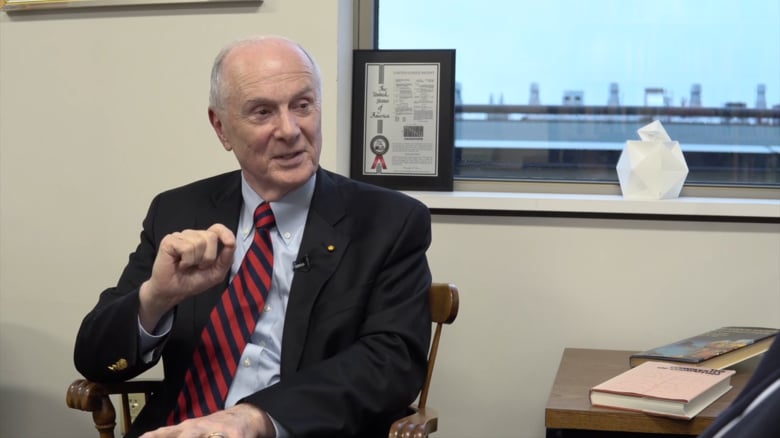
by BGF | Oct 14, 2018 | World Leaders in AIWS Award Updates
Distinguished Global Educator for Computer Science and Security
Loeb House, Harvard University, December 12, 2017

Prof. John Savage, Professor of Brown University
John Savage is the An Wang Professor of Computer Science at Brown University. His current research interests are cybersecurity technology and policy, reliable computation with unreliable components, computational nanotechnology, efficient cache management on multicore chips, and I/O complexity.
Professor Savage is a Fellow of the American Association of the Advancement of Science and the Association for Computing Machinery, a Life Fellow of Institute of Electrical and Electronics Engineers, a Guggenheim Fellow, a professorial fellow with the Global Cooperation in Cyberspace Initiative at the EastWest Institute, and a recipient of a Fulbright-Hays Research Award.
He served as a Jefferson Science Fellow in the U.S. State Department during the 2009-2010 academic year. His professional service has included service on the editorial board of the Journal of Computer and Systems Sciences and as a member of the MIT Corporation Visiting Committee for the Department of Electrical Engineering and Computer Science from 1991-2002.
Professor Savage earned his PhD in Electrical Engineering at MIT in 1965 specializing in coding and information theory. He joined the faculty of the Division of Engineering at Brown in 1967. In 1979, he co-founded the Department of Computer Science and served as its second chair from 1985 to 1991.
John Savage was honored as the Distinguished Global Educator for Computer Science and Security for fundamental contributions to theoretical computer science, information theory, and VLSI design, analysis and synthesis by the Boston Global Forum and the Michael Dukakis Institute on December 12, 2017 at Loeb House, Harvard University.

















